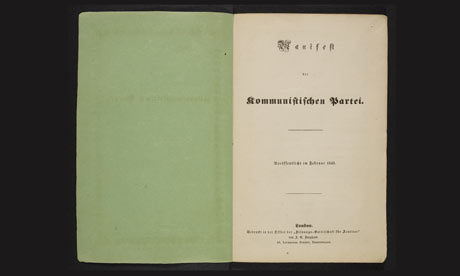關於香港事態的緊急聲明
10月16日,香港抗爭運動組織者岑子杰在街頭遇到不明人士襲擊,導致重傷住院。此前,類似的抗爭者遇到襲擊的事件,已經不斷發生,事態有進一步嚴重惡化的趨向。我們要特別指出,岑子杰作為抗爭的領導人,一貫主張和平理性非暴力,也從未對香港的警察和執法部門進行過,或者呼籲進行任何暴力攻擊。對這樣的一個和平示威者的暴力襲擊,證明在香港的這些暴力攻擊,根本不是針對違法者的正常執法行為,毫無疑問是典型的侵犯人權,意圖製造恐懼的國家暴力行為。
我們有理由懷疑,這是北京政府和港府指使的行為,至少,這樣的暴力行為是受到港府和北京政權的縱容和放任的。香港,現在已經進入了恐懼瀰漫全城的狀況,抗爭民眾的領導人的生命安全受到嚴重威脅。
我們認為,面對香港事態的惡化,國際社會的壓力至關重要。我們呼籲美國參議院盡快通過眾議院剛剛通過的《香港民主與人權法案》,我們呼籲川普總統儘快簽署法案,我們也呼籲法案正式通過以後,美國要立即開始對縱容暴力,進行人權侵害行為的責任者進行制裁。為此,我們願提供一切可能的協助。
我們認為,人權與民主的價值是全世界和平安定的保障,我們希望美國作為自由世界的領導,能夠挺身而出,救救香港人。
簽名人:王丹 林培瑞(Perry Link)嚴家其 苏晓康 吾爾開希 王軍濤 胡平 廖亦武 侯芷明(Marie Holzman)陳奎德 周鋒鎖 滕彪 熊炎 項小吉 方政 白夏(Jean Philippe Beja)康正果 陶君行 夏明 呂京花 李恒青 芮朝懷 關卓中 鄭存柱 馮崇義 李蘭菊
台灣第一次人權座談 1931.4.6

-----
胡適等是人權先知。20年代末 (1930),新月雜誌社出版《人權論集》一書,由胡適寫序,
《人權論集》目錄
本書定名為《胡適與現代中國人權觀念資料彙編》*,涵括兩大部分。第一部分重行編輯整理久已絕版的《人權論集》(上海:新月書店,1930);第二部分,分為兩卷,選錄脈絡相承,確可彰顯人權觀念之重要史料。這些文獻資料,涉及領域多元而豐富,當年確曾引領風騷,擴張開展,導引澎湃的時代思潮。本書選精取要,執此一編,期便利研究與教學工作。
- 出版單位:中央研究院, 2017
- 潘光哲主編
國立人權博物館籌備處主持,中研院近史所主編,稻鄉出版社印行,潘光哲(總編),林弘毅(責任編輯)《胡適與現代中國人權觀念資料彙編》目錄
王逸群主任序
編輯凡例
導論:潘光哲
編輯凡例
導論:潘光哲
第一章:批評政府、辯論黨義的《人權論集》
小序—胡適
人權與約法—胡適
〈人權與約法〉的討論—胡適
我們什麼時候才可有憲法:對於《建國大綱》的疑問—胡適
論人權—羅隆基
論思想統一—梁實秋
告壓迫言論自由者:研究黨義的心得—羅隆基
「新文化運動」與國民黨—胡適
知難,行亦不易:孫中山先生「行易知難說」的述評—胡適
專家政治—羅隆基
名教—胡適
人權與約法—胡適
〈人權與約法〉的討論—胡適
我們什麼時候才可有憲法:對於《建國大綱》的疑問—胡適
論人權—羅隆基
論思想統一—梁實秋
告壓迫言論自由者:研究黨義的心得—羅隆基
「新文化運動」與國民黨—胡適
知難,行亦不易:孫中山先生「行易知難說」的述評—胡適
專家政治—羅隆基
名教—胡適
第二卷:引領風騷、嚮導時代的人 權史料
爭自由的宣言—胡適(等)
我們要我們的自由—胡適
汪精衛論思想統一—羅隆基
對於言論自由之初步認識
我的被捕的經過與反感—羅隆基
人權釋疑—羅隆基
保障人權之謂何?
宋慶齡等發起中國民權保障聯盟
民權的保障—胡適
中國為什麼沒有輿論?—胡霖
政府與提倡道德—傅斯年
汪蔣通電裡提起的自由—胡適
為報界向五中全會請命
統制思想與政治教育—蕭公權
思想自由與文化—張東蓀
法國人權協會之人權宣言—張君勱
中國的政局—儲安平
論文匯、新民、聯合三報被封及大公報在這次學潮中所表示的態度—儲安平
出版法及新聞自由
我們建議政府調查並公佈白報紙配給情形—儲安平
第二個聞一多事件萬萬製造不得—儲安平
我們要我們的自由—胡適
汪精衛論思想統一—羅隆基
對於言論自由之初步認識
我的被捕的經過與反感—羅隆基
人權釋疑—羅隆基
保障人權之謂何?
宋慶齡等發起中國民權保障聯盟
民權的保障—胡適
中國為什麼沒有輿論?—胡霖
政府與提倡道德—傅斯年
汪蔣通電裡提起的自由—胡適
為報界向五中全會請命
統制思想與政治教育—蕭公權
思想自由與文化—張東蓀
法國人權協會之人權宣言—張君勱
中國的政局—儲安平
論文匯、新民、聯合三報被封及大公報在這次學潮中所表示的態度—儲安平
出版法及新聞自由
我們建議政府調查並公佈白報紙配給情形—儲安平
第二個聞一多事件萬萬製造不得—儲安平
第三卷反抗威權、先鋒民主的《自由中國》
關於統一思想底問題—殷海光
言論自由的認識及其基本條件
國家自由與個人自由—羅鴻詔
個人自由乎?國家自由乎?—傅正
政治組織與個人自由—殷海光
對文化界清潔運動的兩項意見
個人為國家之本—殷海光
對搆陷與汙衊的抗議—從個人自由與國家自由說起—雷震
倪路案亟待澄清
我們的新聞自由
為自治半月刊橫遭查扣而抗議
出版法事件的綜合觀—夏道平
國民黨當局應負的責任和我們應有的努力—傅正
創設講理俱樂部—殷海光
你要不要做人?—殷海光
政府不應用經濟方法打擊民營報紙!—傅正
從憲法保障人民身體的自由說到取諦流氓辦法—雷震
治安機關無權查扣書刊—從祖國月刊被扣說到書報雜誌審查月報之違法—傅正
請速停辦大陸來台國民調查!—
自由中國言論撰稿人共同聲明—殷海光(等)
我的抗議與呼籲:法院拒絕提審我的丈夫雷震先生後「—宋英
附錄:中國人權觀念史大事記(1920~1960)
言論自由的認識及其基本條件
國家自由與個人自由—羅鴻詔
個人自由乎?國家自由乎?—傅正
政治組織與個人自由—殷海光
對文化界清潔運動的兩項意見
個人為國家之本—殷海光
對搆陷與汙衊的抗議—從個人自由與國家自由說起—雷震
倪路案亟待澄清
我們的新聞自由
為自治半月刊橫遭查扣而抗議
出版法事件的綜合觀—夏道平
國民黨當局應負的責任和我們應有的努力—傅正
創設講理俱樂部—殷海光
你要不要做人?—殷海光
政府不應用經濟方法打擊民營報紙!—傅正
從憲法保障人民身體的自由說到取諦流氓辦法—雷震
治安機關無權查扣書刊—從祖國月刊被扣說到書報雜誌審查月報之違法—傅正
請速停辦大陸來台國民調查!—
自由中國言論撰稿人共同聲明—殷海光(等)
我的抗議與呼籲:法院拒絕提審我的丈夫雷震先生後「—宋英
附錄:中國人權觀念史大事記(1920~1960)
2014
In 1948, under the leadership of the United States and the prodding of Eleanor Roosevelt, the UN General Assembly proclaimed December 10 to be Human Rights Day, to bring to the attention to the Universal Declaration of Human Rights as the common standard of achievement for all peoples and all nations. Today, 66 years later, America faces the reality of police brutality, CIA torture, and the imprisonment of a larger portion of our population than any other modern nation. What happened?
2011
12月10日是聯合國所定「世界人權日」,聯合國人權高級專員皮萊9日指出,2011年是人權很不尋常的一年,從突尼西亞爆發「阿拉伯之春」洪流,完成改變了中東歷史軌跡。
她強調,阿拉伯之春波瀾壯闊,引發全球迴響,而傳播此信息的,不是傳統媒體或其他媒介,而是飛速增長的社交媒體。
皮萊指出,今天無論在什麼地方發生抗爭,保証將在推特上發言,在臉書上張貼,在You ube上播出,在互聯網上載。政府不再能壟斷信息傳播並審查言論。
聯合國大會於1948年12月10日通過並發表「世界人權宣言」,1950 年,聯大決定將每年的12月10日定為「世界人權日」。
Ten of the best political documents
The reports, acts and manifestos that defined the world we live in today

The title page of the Communist Manifesto Photograph: The British Library Board

沒有留言:
張貼留言